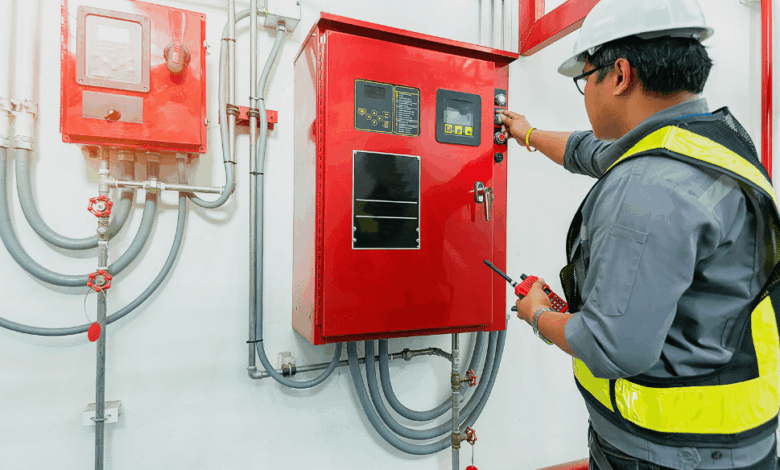
Smart homes are becoming an essential part of modern living in London, offering comfort, convenience, and safety through connected devices. One of the most important aspects of a safe home is fire protection, and technology has advanced far beyond the traditional smoke detectors. Many homeowners now recognise the benefits of installing AI fire alarm systems in your smart home, especially when considering professional Fire Alarm Installation, as these systems use artificial intelligence to detect, analyse, and respond to potential fire hazards more quickly and accurately than older methods.
Smarter Fire Detection
Traditional alarms often work by detecting smoke or sudden heat changes. While effective to a point, they can sometimes be slow to respond or prone to false alarms. AI fire alarm systems are designed to process multiple data points at once, including heat patterns, air quality changes, and even sound recognition. This allows the system to identify unusual conditions more accurately.
For London homes, where buildings can range from modern apartments to centuries-old houses, accurate detection is vital. False alarms are disruptive, but delayed alarms are dangerous. By using AI, homeowners benefit from a more reliable system that reduces unnecessary alerts while ensuring genuine risks are flagged immediately.
Faster Emergency Response
One of the biggest advantages of AI-driven systems is their ability to communicate effectively with both homeowners and emergency services. When a potential fire is detected, the system can instantly notify residents through mobile alerts, voice assistants, or integrated smart devices.
In addition, many systems can be connected to emergency responders. This means that even if you are not at home, the authorities can be alerted promptly. For London, a city with busy streets and dense housing, a faster response time can significantly reduce the risk of serious damage or injury.
Adaptability to the Home Environment
Every home has its unique design, layout, and usage patterns. AI fire alarm systems learn from these conditions and adapt their performance over time. For example, they can distinguish between steam from the kitchen or bathroom and actual smoke from a fire.
This adaptability is especially useful in London homes where space can be limited, and multiple activities may take place in the same area. By reducing the likelihood of unnecessary alarms, AI systems provide reassurance without constant interruptions.
Integration with Smart Home Devices
Smart homes thrive on integration, and fire safety systems should be no exception. AI fire alarms can work with lighting, heating, and security devices to create a coordinated safety response. For example, in the event of an alarm, the system can automatically unlock doors, switch on emergency lighting, or shut down heating systems to slow the spread of smoke.
In London properties where safety regulations are strict and space efficiency is important, having a coordinated response can make evacuation quicker and safer. This type of integration goes beyond detection—it actively assists in managing the situation.
Early Warning and Prevention
AI systems are not just reactive; they can also be proactive. By monitoring patterns in air quality, temperature, or electrical activity, they can provide early warnings of potential fire risks before flames or smoke are visible.
For example, overheating electrical appliances or wiring issues can be detected early. This is particularly relevant for older London buildings, many of which still have outdated electrical systems. Spotting these risks before they develop into a fire can help homeowners address maintenance issues in time.
Accessibility and Support for All Residents
Fire safety is not just about technology—it is also about people. AI fire alarm systems are designed to support residents with different needs. They can provide visual, auditory, and even vibration-based alerts, making them more inclusive for people with hearing or vision impairments.
In a diverse city like London, where households can include children, elderly residents, or those with disabilities, accessibility is crucial. An AI-powered system ensures that everyone receives the right type of alert in an emergency, improving overall safety.
Compliance with Safety Standards
London, like the rest of the UK, has strict fire safety regulations for both residential and commercial properties. AI systems help homeowners align with these standards by offering advanced monitoring and reliable alerts.
For more detailed guidance, residents can refer to the UK Government’s fire safety advice, which outlines steps to reduce fire risks and explains the legal responsibilities of homeowners and landlords. Having a system that exceeds traditional safety measures adds another layer of confidence in meeting these obligations.
Peace of Mind for Families
Beyond the technical advantages, one of the most important benefits is peace of mind. Knowing that your home is protected by an intelligent system capable of detecting and responding to threats reduces anxiety for families.
Whether you live in a busy part of central London or a quieter residential area, the reassurance that your home is being monitored at all times can help residents feel secure. Even when travelling, mobile connectivity means you can check on your home remotely, adding another layer of comfort.
Looking Towards the Future
AI is becoming a key part of how homes in London operate. From energy management to security, smart systems are improving daily life. Fire safety is no exception, and AI fire alarm systems represent the next step in protecting people and property.
As these systems continue to evolve, they are expected to become even more accurate, predictive, and interconnected. This means that the future of fire safety in London homes is not only about responding to danger but preventing it before it happens.
Conclusion
Fire safety has always been a top priority for households, but the tools available are becoming more advanced. AI fire alarm systems offer faster detection, improved accuracy, integration with smart devices, and proactive prevention, making them an excellent choice for modern homes.
For London residents, where housing is diverse and regulations are strict, these systems provide both safety and reassurance. By combining advanced technology with accessibility and compliance, they create a safer environment for families today and into the future.If you want to stay updated with posts like this, please follow us on The AI Journal.



